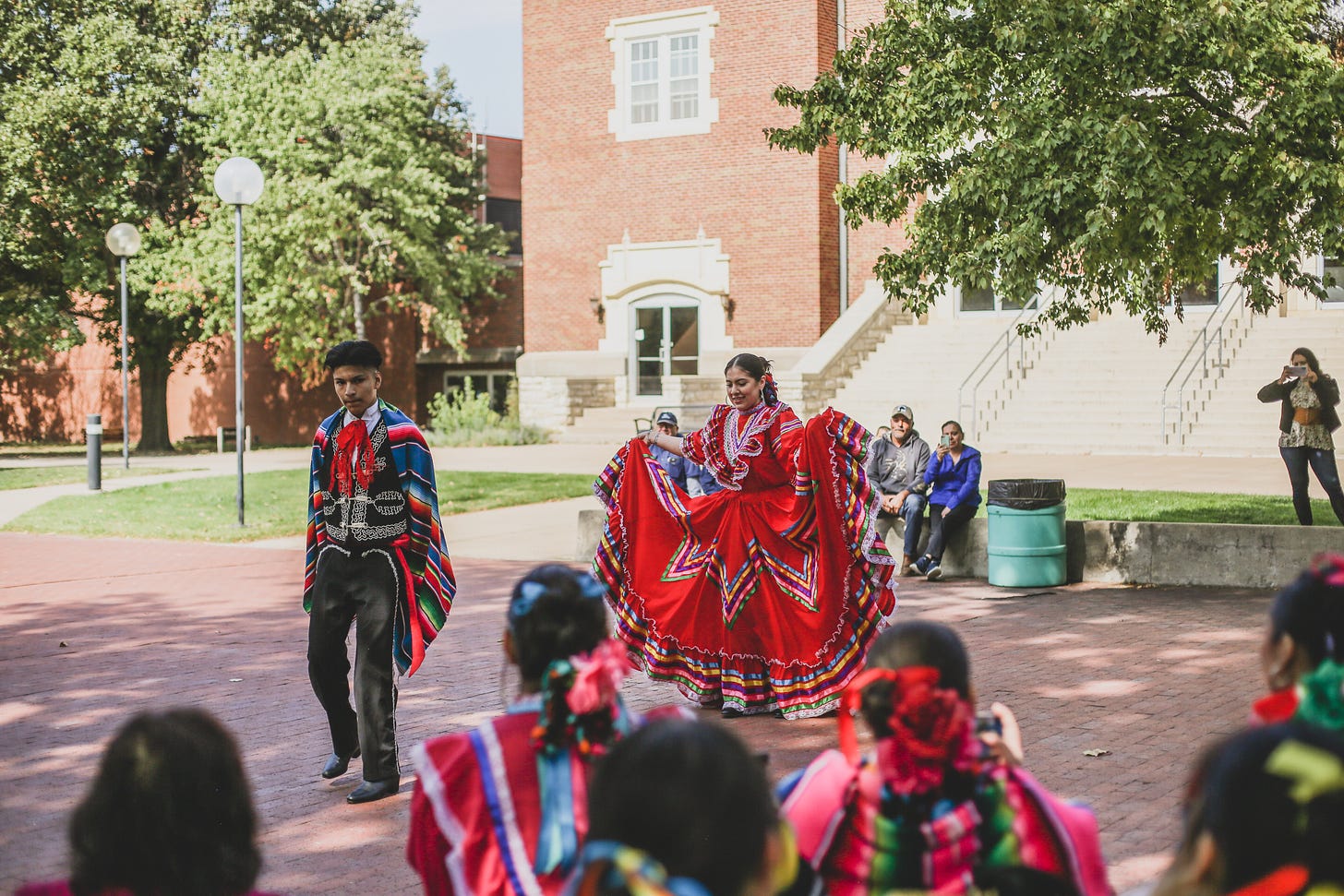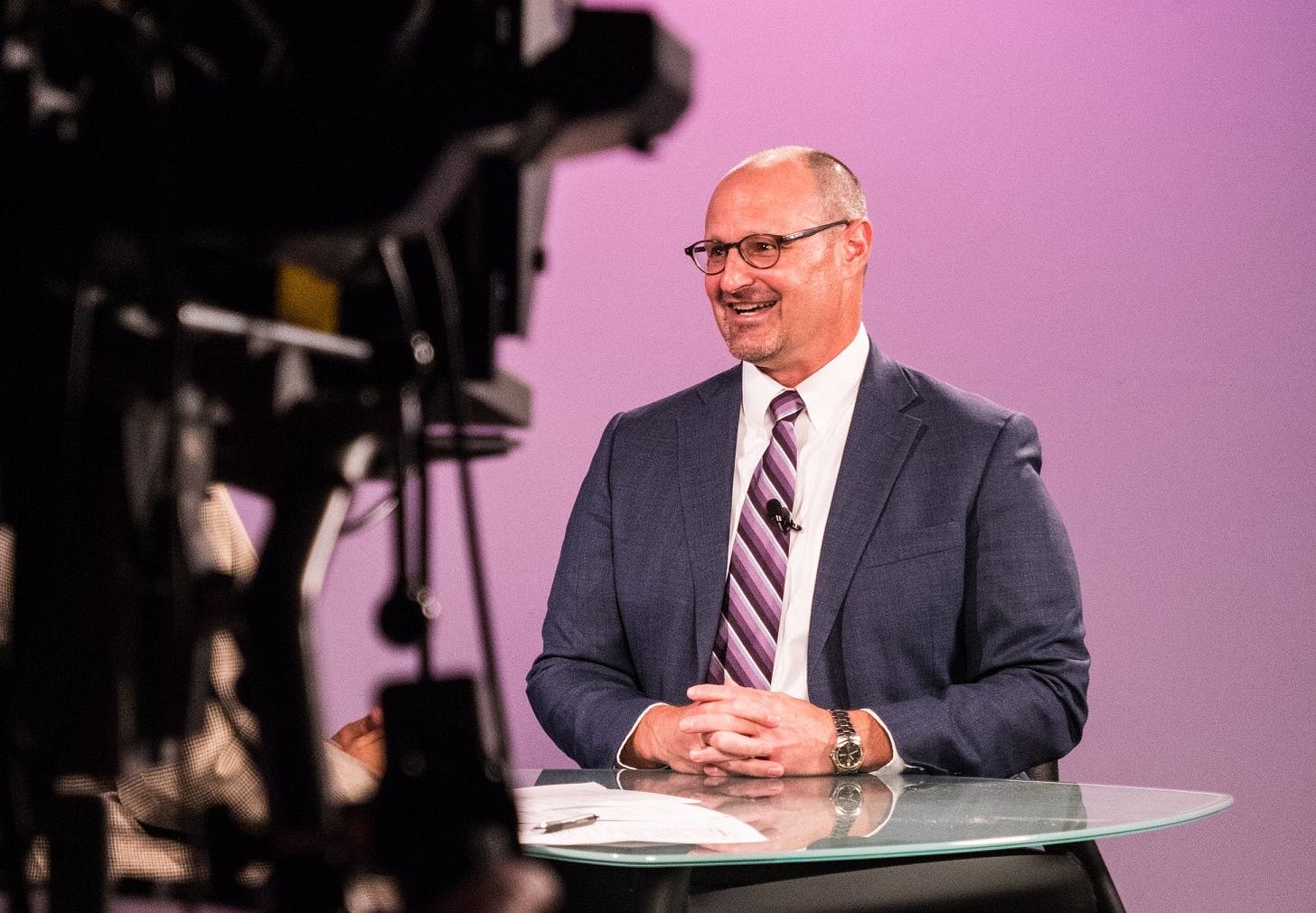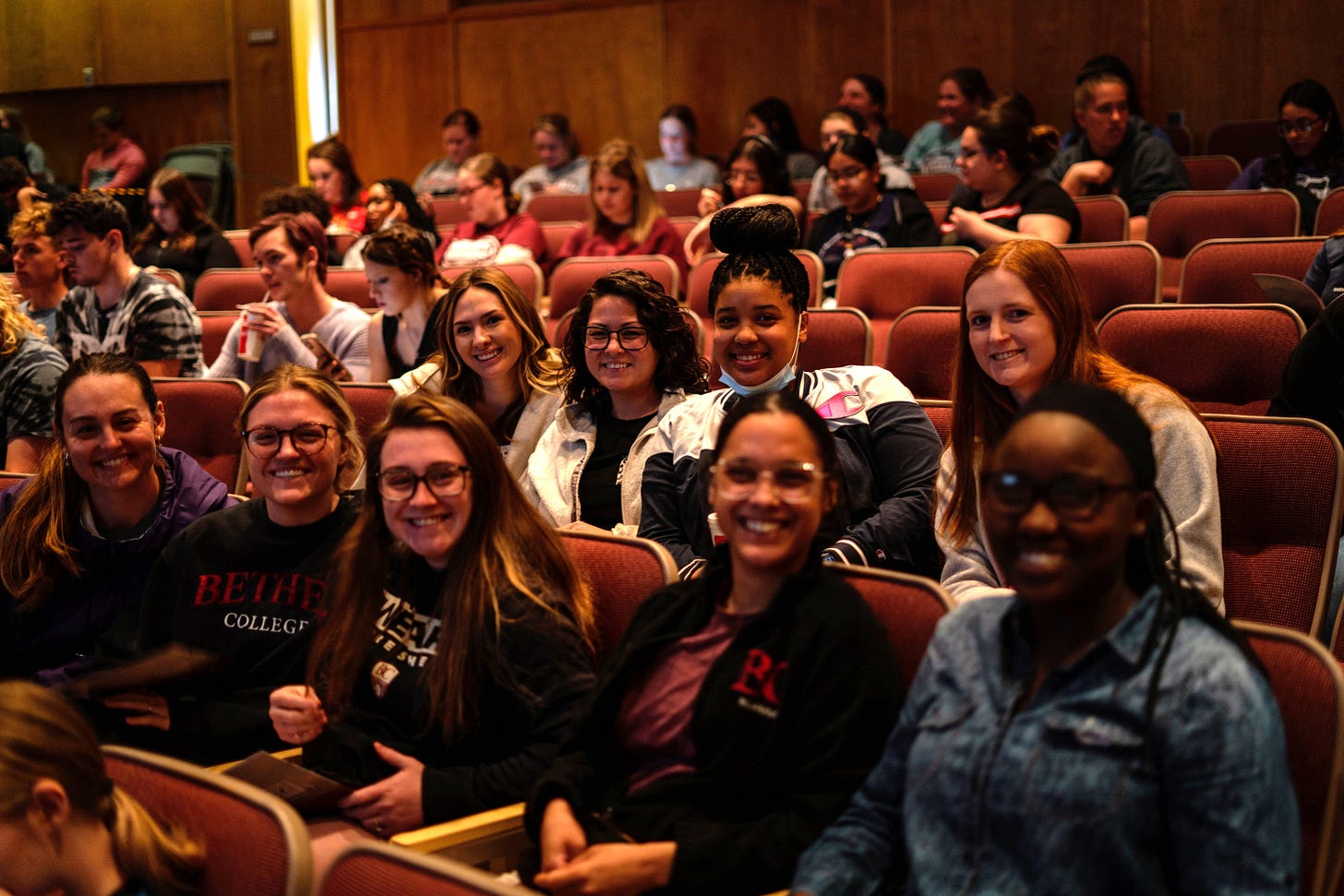Bethel faculty, staff team aims to revitalize DEI position
As the institution celebrates its most diverse student body ever, President Jon Gering agrees there's still more work to be done.
Bethel’s fifth ‘Strategic Priority’ (SP) as part of the Thresher Way program is focused on figuring out what diversity means to the Bethel College campus as well as how to go about expanding the works of diversity on campus.
As this SP continues to be a goal for employees and students alike, the revitalization of a critical position in this field is in the works.
Bethel College’s first Diversity, Equity, and Inclusion (DEI) office was filled on July 1, 2018. Julian Gonzalez-Salamanca served in this role as the director of DEI for some time before he shifted positions and went to a new line of employment. The position hasn’t been occupied since.
“We have taken that pause and are working towards trying to identify and coalesce around a college-wide diversity, equity, and inclusion plan,” said Bethel President Jon Gering. “This office, if we choose to fill it, would probably play a role in that plan.”
After the end of the first office of DEI, a group of faculty and staff members has been working to bring the position back in combination with other efforts towards DEI on campus. These members include Robert Milliman, Sheryl Wilson, Eva Lapp, Christine Crouse-Dick, Joseph Husong, Cristy Dougherty, Chywonna Gonzalez, Peter Goerzen, Rachel Epp Buller, Denise Krase, Doug Siemens, Melanie Zuercher, MeShonya Wren-Coleman, John McCabe-Juhnke, Ada Schmidt-Tieszen, and Damon Klassen.
These individuals comprise the Truth, Racial Healing, and Transformation team, or TRHT. “That team was another group of voices that were like-minded and working on this kind of issue,” Klassen said. They teamed up with the Bethel College Anti-Racism Coalition (BCARC) and discussed the need for the office years after the end of the first DEI position.
The original DEI job description was too much for one person to take on. The main goal was to dismantle systemic racism on Bethel’s campus — which, the team believes, will take generations of work. “It can be overwhelming, despite the fact that there [are] good intentions and desire to do it,” Gering said. “Focusing on things that we can change which includes individual behaviors.”
The group of aforementioned members came together and drew up a proposal to meet with Gering last year with renewed efforts. This proposal was linked with the strategic priorities and proposed the need for the DEI office. “We talked about each priority and how an Office of Equity and Inclusion would benefit each of those priorities,” said Klassen. “President Gering seems to be on board and it sounds to me like the [board of directors] is also on board.”
“I think filling a DEI position would give people a place to go to a definitive office on campus that would also bring some additional energy around DEI efforts on campus,” said Gering.
This proposal suggested that the office hire a full-time professional director who is trained in the field of DEI. “Our thought was that we would have a group of faculty and a group of students fellows who work for the office,” Klassen noted. “These students would be placed in various offices where the student fellow will represent the [DEI] office and bring any issues back and forth.”
Issues that arise, such as students participating in Lent and not being able to eat in the Caf because of the options provided, would be on the office to find a solution for. The office would mediate and hear all sides of a given situation to craft a plan that is most equitable.
“It would be about all those little things that people bring to mind and bring to light,” Klassen added. “It would also target things we don’t see. … The goal is to try to root out the institutional stuff — the stuff that’s way under the surface that you don’t see or is hard to conceptualize.”
The vision for this office also includes assisting the institution’s hiring process and helping with advertising open on-campus positions to different communities and cultures, reaching beyond the normal scope.
“We have students from all over the world and all over the country with so many different cultures [and] they all need to see themselves more with faculty and administration and they need to engage in their culture to celebrate and appreciate all of their culture,” said Klassen.
Financial setbacks have limited efforts towards the upbringing of the DEI office position, but that doesn’t stop individuals from doing their role of DEI work on campus. “I don’t think there’s actually been a setback in DEI work,” Gering said. “In fact, what I’ve encouraged people to do is to celebrate the things that we’ve accomplished because it’s a lot.”
Currently, Bethel has the most diverse employee and student body in its history. “This could be due to employees and students alike feeling comfortable here at Bethel, so we should take a moment and celebrate that,” said Gering. Bethel has also become a member of the truth, racial healing, and transformation initiative nationwide. Almost 150 people on campus have been impacted by those activities.
Additionally, Bethel is a member of “Belong,” which is sponsored through the Council of Independent Colleges that focuses on student belonging on campus.
Individual actions play a heavy role in the effectiveness of DEI work. “It’s people taking individual behaviors and modifying them, said Gering. “It’s people taking individual control over their syllabi, or over their office and practices, and all of us can do that. That’s really what gets the work done. An Office of Diversity Equity and Inclusion isn’t going to change that people are still going to have to take individual actions and they can do that in whatever feels most powerful to them and most applicable to their position at the college.”
Current visions of the future of DEI on the campus in North Newton have been discussed within the cabinet and group of employees. “I’m super excited and super hopeful,” said Klassen. “This is really important work and we’re just trying to figure out how and when we can make it happen.”
Other efforts include a calendar for all religious holidays that recommend employees check course schedules and be considerate of students who celebrate these holidays, which requires faculty and staff to be aware of cultural differences. The calendar and interfaith room in the Ad Building came from the efforts of the DEI position.
With these DEI efforts, the ultimate goal is to put everybody on a level playing field. “DEI is not a single solution,” Gering said. “We’re having an ongoing conversation. It’s in a rich and exciting area. This is an area where there's a lot of strong feelings about what we should do and a lot of passion about what we should do.”
The process will continue for years to be effective long-term. Modifications and adaptations will be a continual investment by making personal investments into making a difference.
Gering also mentioned his desire to produce alumni who haven’t felt welcome in the past and ensure that minority and/or historically underrepresented students graduate at the same rate as white students. Currently, that isn’t the case yet.
“That’s my primary focus in the diversity, equity, and inclusion work and the reason for that is if those graduation rates go up, then it is better for the individuals and we have a better opportunity of creating legacy families and in places where we haven’t had them before,” Gering said.
The board of directors is fully invested in DEI work. “We should celebrate progress,” added Gering. “We are making progress and we are going to continue to have those conversations and develop a plan.”




